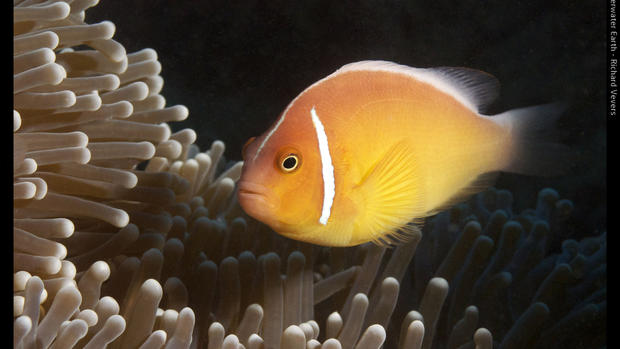New website provides panoramic images of world's coral reefs
A first-of-its-kind online database of coral reefs launched this week to help scientists understand the changes brought about by over-exploitation, pollution and climate change.
The Catlin Global Reef Record is intended to allow scientists to collaborate on work related to the major coral reef ecosystems. Between one third and one half of the world's corals have been lost in the last 50 years, according to a statement about the database's launch.
Some 500 million people around the world depend on coral reefs for food and income, the statement said.
The global reef record features hundreds of thousands of 360-degree panoramic images plus additional scientific data. A survey team collected the panoramic visuals and data during expeditions of Australia's Great Barrier Reef, coral reefs across the Caribbean and its most recent expedition in Bermuda, which began earlier this month.
The record is a product of the Catlin Seaview Survey, a scientific expedition that is examining the state of the world's coral reefs. It is sponsored by the international insurer, Catlin Group Limited.
Beyond the images, the record incorporates data and research methods from scientific collaborators to establish common methodology in research and measurement. It expects to set a benchmark in coral reef science for follow-up monitoring programs.
The collaborators include the Global Change Institute at The University of Queensland in Australia; the National Oceanic and Atmospheric Administration, which is incorporating its Coral Reef Watch data; The World Resources Institute, which is including data and findings from its seminal "Reefs at Risk" reports; and scientist David Kline from the Scripps Institution of Oceanography at the University of California, San Diego.
"Studying our oceans on a global scale and working together across public, private and academic sectors to share information and analysis is critically important," Mark Eakin, coordinator of the Coral Reef Watch, said in a statement. "Integrating our virtual station information in the Catlin Global Reef Record connects data on one of the biggest threats to coral reefs, climate change; with observations from one of the first and hardest hit ecosystems."
The database's release comes just as findings from one of the working groups of the Intergovernmental Panel on Climate Change Fifth Assessment Report are being detailed. The assessment report will present the scientific consensus on the physical and chemical changes of oceans associated with the rise of greenhouse gases such as carbon dioxide.
Studies have found that oceans are storing the excess heat associated with human-caused climate change and are becoming more acidic -- damaging marine life and changing ecosystems such as coral reefs, the statement said.
